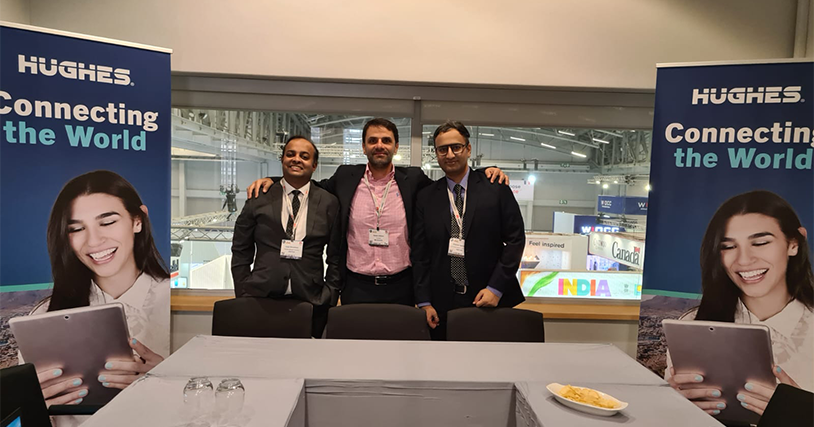Industry Leaders Reunite at Africa Tech Festival to Bridge the Digital Divide

After two long years, Africa Tech Festival 2022 reunited a community of more than 12,000 people dedicated to Connecting Africa and tackling the immense scope of the sub-Saharan digital landscape. Throughout the weeklong event in November, attendees shared knowledge, discussed challenges and built relationships, all with the intent of closing the digital divide across the continent. As remote work and schooling have taken hold globally, this goal has grown even more prominent over the last few years.
Several major themes emerged around the promise of delivering a better, more inclusive digital Africa:
-
Strong demand and market growth. Across the sub-Saharan, everyone agrees there are still too many people without access to the internet. As an International Monetary Fund (IMF) article reported, only 28 percent of Africans use the internet, a digital divide that prevents the continent from taking full advantage of technology. With the proliferation of mobile devices and their relative affordability, including Wi-Fi handsets commonly used in the region, millions could benefit from connectivity and the ability to jump on the web if an infrastructure backbone existed. This points to potential market growth, especially for satellite operators that can deliver services to rural areas where fiber and microwave aren’t suitable solutions.
-
National broadband plans. A widely reported study from the World Bank concluded a 10 percent increase in fixed broadband penetration would increase a nation’s GDP growth by 1.21% in developed economies and 1.38% in developing ones. When we look at potential economic impact, national broadband access plans are likely the best and fastest solution for increasing internet access across Africa and bridging the digital divide.
-
Industry commitment to the region. It was evident through all of my conversations that industry leaders, like Hughes, are committed to the region and to partnering with public and private sector customers to empower and complement their national broadband plans. Such collaboration will enable innovation and the delivery of services to overcome Africa’s challenges to digital transformation.
-
Interest in managed services and hybrid networks. Like elsewhere around the globe, sub-Saharan governments and enterprises (large and small) are interested in learning more about how managed services and Infrastructure as a Service (IaaS) offerings can reduce capital expenses (CapEx) and facilitate a shift to operating expense (OpEx) models. For a variety of sectors, including banking, mining, security and e-services, these approaches sound intriguing. They are also eager to learn more about hybrid networking and such capabilities as Hughes ActiveComms Ecosystem, which combine terrestrial connectivity with satellites in different orbits, like LEO/MEO/GEO (low and medium earth and geosynchronous orbits) and applies Managed Network Services along with artificial intelligence (AI) and machine learning to increase network efficiency and the user experience.
Whether discussing major trends or exploring requirements and tech opportunities, it was evident at Africa Tech that leaders from industry, government and business are eager to accelerate Africa’s digital transformation.